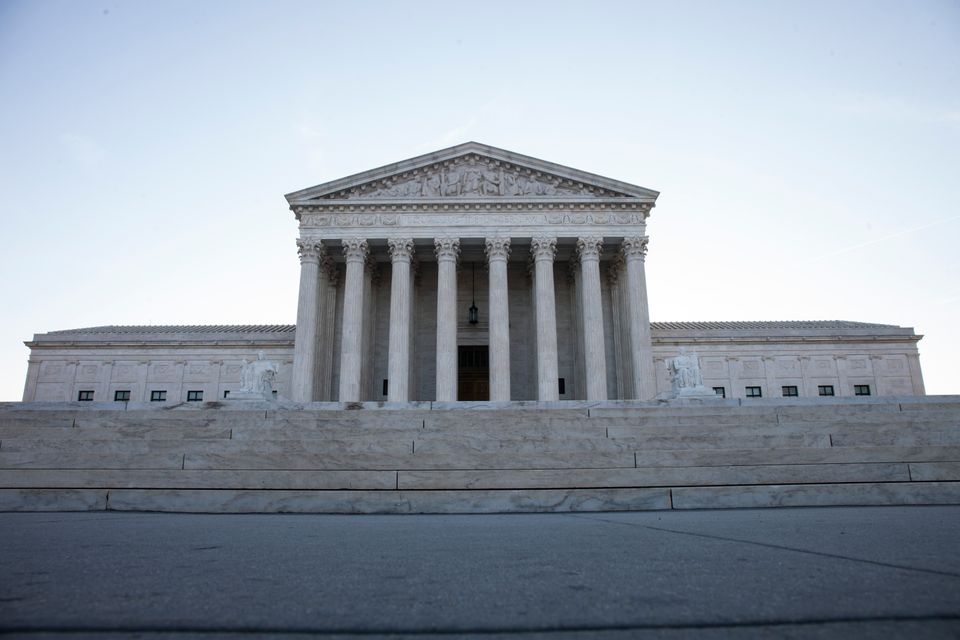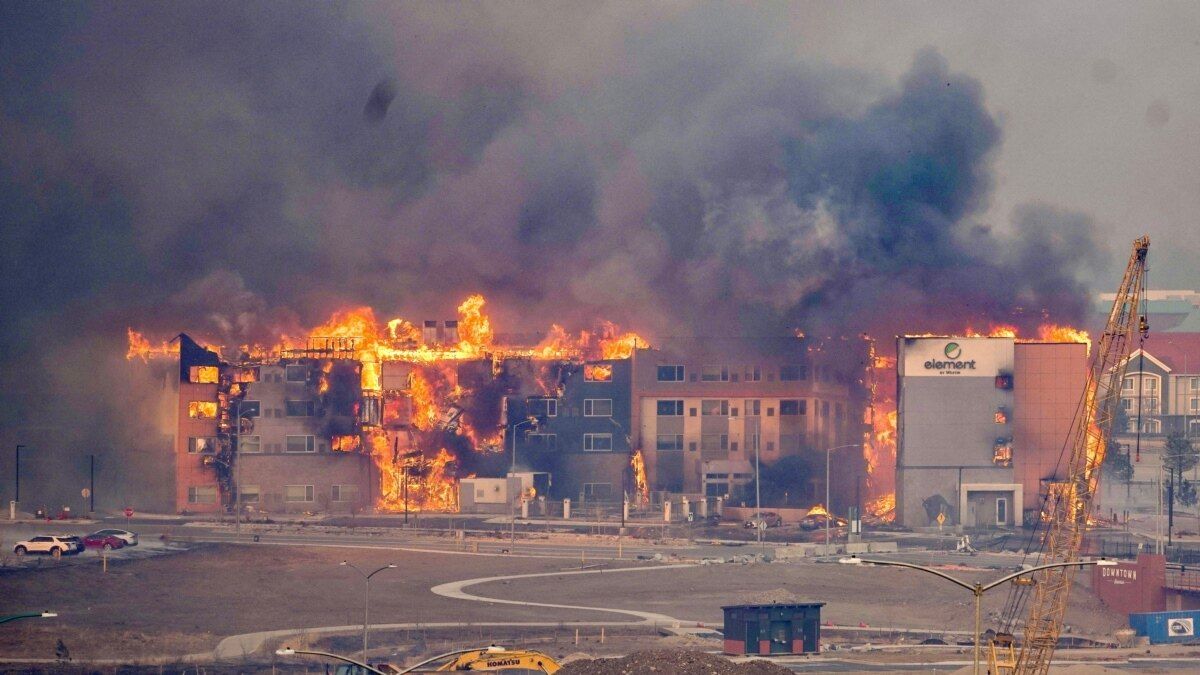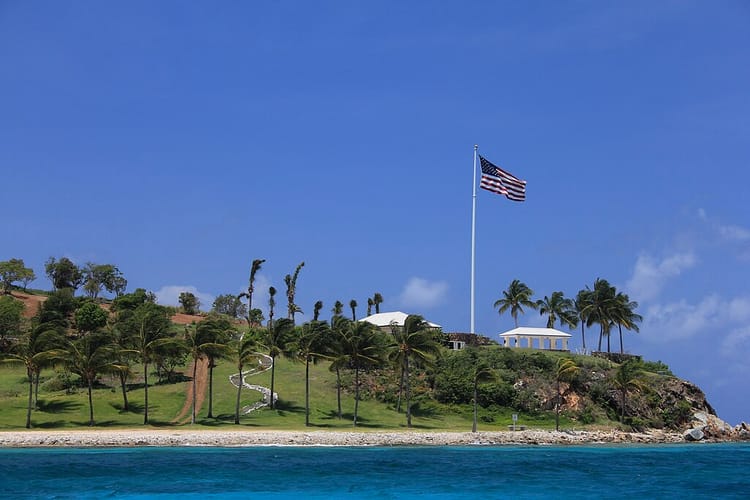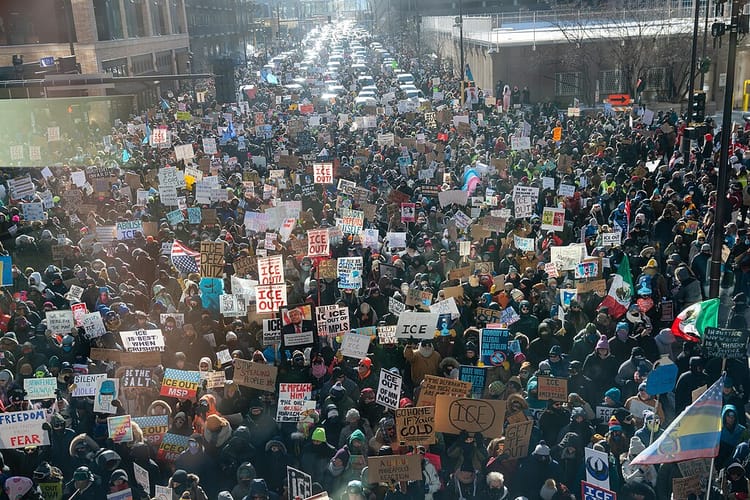SCOTUS Says No to Exxon, Now the Corporate Free Speech Fight Begins

On Monday this week the Supreme Court finally weighed in on whether it would take up the jurisdictional argument that oil companies are making in multiple climate liability suits. The companies have been arguing for the past five years that these cases, brought on behalf of municipalities and states, are asking state courts for judgements that would impact federal policy and thus belong in state court. Attorneys representing state and local arguments have argued that their cases—which claim that oil companies' delay tactics on climate increased the cost of adaptation and thus the companies are liable for a portion of those costs—were appropriately filed in state court. Every circuit court has agreed, as has the Department of Justice, and now the Supreme Court as well.
"The companies' history of climate, deception, and misinformation, coupled with their unchecked fossil fuel production promotion, and so on, it makes them liable for at least some of the costs that these communities face, so that these costs don't fall entirely on the taxpayers." — Marco Simons, EarthRights International, attorney representing Boulder and other Colorado municipalities against oil companies.

It's big news, but what will it mean for these cases? Some of them, including Boulder, which was the case invoked in the initial petition to the Supreme Court, will go back to arguing against other motion-to-dismiss arguments in state court. But others, starting with Hawaii, will move towards trial and that's a really big deal because it means some of these cases will get into the phase of litigation oil companies have been trying their hardest to avoid: discovery. In civil cases, the discovery phase is when companies will be asked to hand over documents and make their executives available for depositions. The evidence gathered during discovery in these cases could spell trouble for the oil company defendants in multiple other cases, including ongoing fraud suits in Massachusetts and Minnesota, a RICO, or racketeering, case filed on behalf of Puerto Rican municipalities, and even international cases given that the majority of these companies operate globally.
"At this point, we're optimistic about moving forward and securing justice for our clients, who have been facing significant harms and costs due to the climate crisis while the oil companies, of course, continue to profit from their deception and misinformation." —Marco Simons, EarthRights International

But of course, oil majors have not put all their eggs in the jurisdictional basket. As I've been writing about for years now, one of the key arguments they're making in these cases is a First Amendment argument. In broad strokes, the argument goes like this: anything they've ever said about climate was in the interest of shaping policy, which makes it political speech (or "petitioning speech" in legalese), and therefore protected. It was clear this was going to be the driving force of these cases when the oil company defendants appointed Chevron's attorney, Ted Boutrous with Gibson Dunn, as their spokesperson across the board. Boutrous is a renowned First Amendment attorney, and Gibson Dunn is the firm that brought and won the most famous corporate free speech in the country's history: Citizens United. And now, even as the broader jurisdictional argument seems to be dead in the water, oil companies have formulated another one: the First Amendment question in these cases is foundational, and is not something that state courts should be weighing in on.
That argument has already been briefed in multiple cases, and it's only a matter of time before it makes its way to the most pro-corporate Supreme Court this country has had in decades...maybe ever. In the meantime, cases will move forward, and it's possible that so many cases moving into discovery will prompt discussion of a tobacco-style settlement. But I wouldn't go counting those chickens just yet.
This week's Climate Must-Reads
- [study] The Climate Burnout Report - compiled by the nonprofit Climate Critical Earth, this is the first report of its kind attempting to quantify burnout in the climate space.
- Last Earth Day, Wynn Bruce Set Himself on Fire Outside the Supreme Court. I Tried to Understand Why (by Michael Kodas, for Inside Climate News) - A beautiful, sad, and insightful piece from Bruce's former teacher.
- A common talking point about climate change gets it all wrong, new study says (by Kate Yoder, for Grist) - Localizing climate problems doesn't activate people anymore than keeping it global, according to new research.
- Tucker Carlson's toxic environmental legacy (by Emily Atkin, for Heated) - A look at how Carlson helped to seed eco-fascism on the right.
- [study] Global research reveals countries where record-breaking heat waves are likely to cause most harm (research by University of Bristol, published in Nature Communications) - As Asia and Spain boil in yet another record-breaking heat wave, new research highlights the regions most likely to become uninhabitable due to extreme heat in the coming years.
If you are enjoying this newsletter, please consider upgrading to a paid subscription! It helps subsidize the 12,000+ free subscribers, enables more reporting, AND gets you access to bonus content as well as early and ad-free podcast episodes. Big thanks to those of you who are already paid subscribers, I see you and appreciate you!





